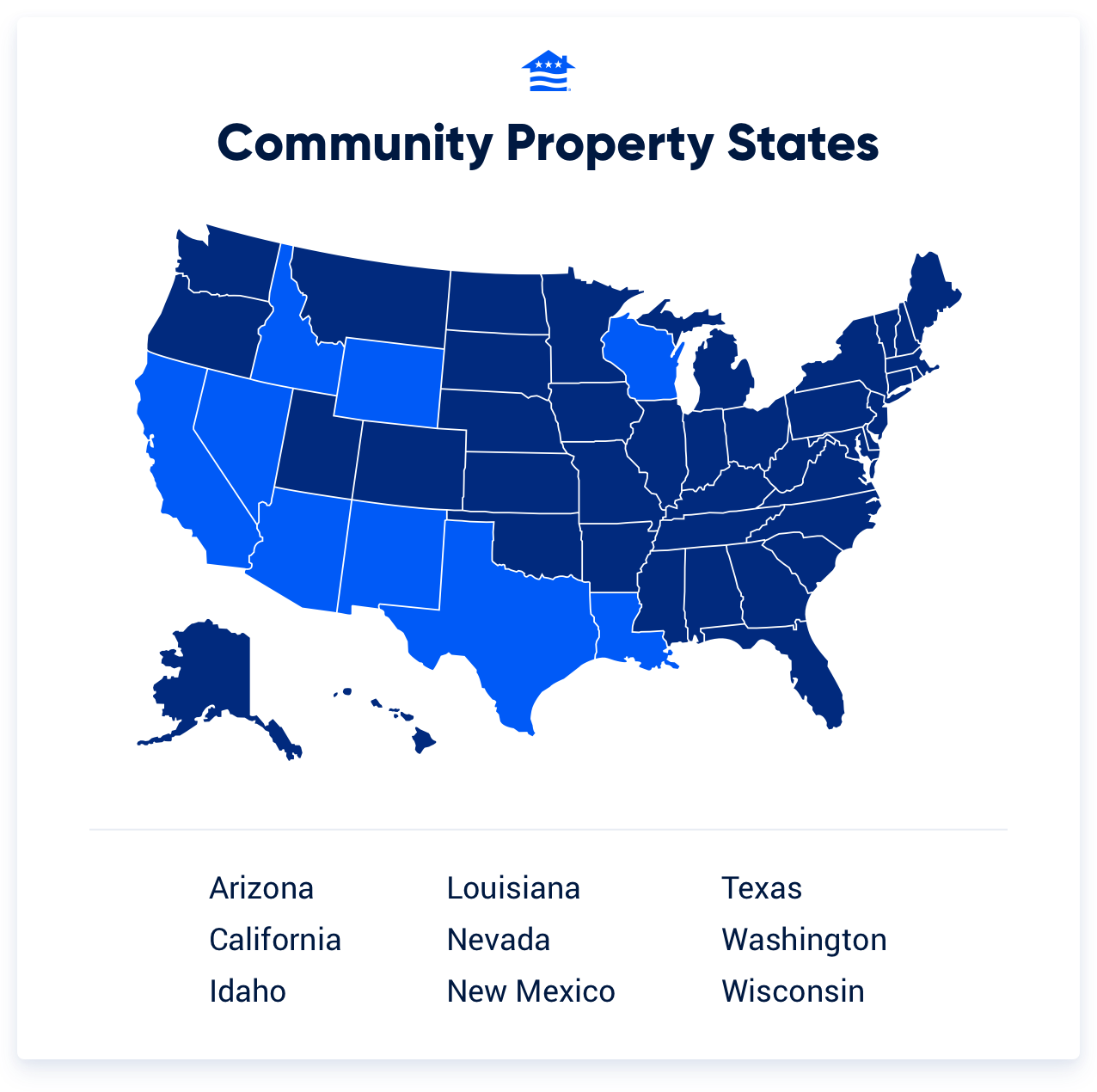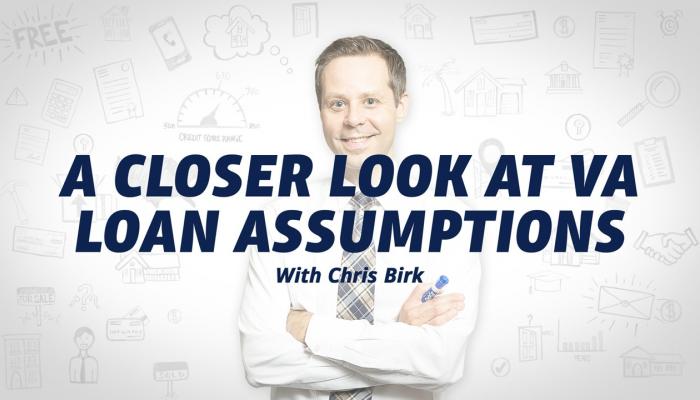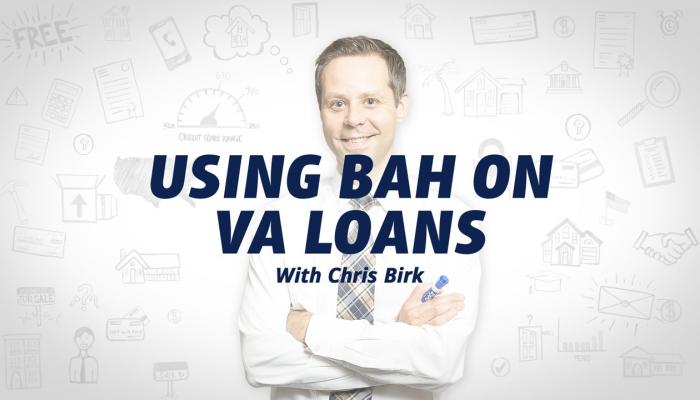Military spouses often play key roles in the homebuying process. Here we take a deep dive into what spouses can expect and how to be better prepared for your homebuying journey.
Military spouses often make significant contributions to the VA loan process.
Some military spouses handle the entire transaction for their Veteran or service member. Others come to the process as co-borrowers on their spouse’s loan, providing effective income that helps couples qualify for a larger loan amount. Some even have their own VA loan eligibility in the wake of a loved one’s passing.
Every Veteran and spouse’s homebuying journey looks different. Let’s look at VA loan requirements for spouses and various VA spousal benefits.
Can my spouse use my VA loan without me?
No, military spouses are not eligible for VA loans on their own. In almost all cases, the VA-eligible Veteran must be the primary borrower. However, surviving spouses may be eligible for a VA loan, typically if they haven’t remarried and their spouse died in the line of duty or due to a service-connected disability.
Can a spouse be added to a VA home loan?
Yes, spouses can be added as a co-borrower or co-signer on a VA loan. Many Veterans and service members choose to include their spouse’s income in order to maximize their homebuying budget and increase the amount they can borrow.
Usually, lenders only count income from people named on the loan. But being on the loan also means military spouses must meet lender and VA guidelines for credit, debts, income and more. If a military spouse is listed on a VA loan, they will become a party responsible for its repayment.
However, there can be negative side-effects of adding a co-borrowing spouse as well. Spouses with credit or debt issues might be more hurtful than helpful. In this case, Veterans with sufficient income should opt to be the sole borrower.
It’s important to know when the military spouse is not included on the loan, they are considered what’s known as the “non-purchasing spouse.”
Can a non-purchasing spouse be on a VA loan?
In most cases, non-purchasing spouses can be listed on the VA loan without their financial information being a factor. However, there are certain states called community property states where lenders can consider a non-purchasing spouse’s credit and debts.
As of November 2023, the nine community property states include:

Guidelines on community property states can vary by lender. Currently, Veterans United looks at the non-purchasing spouse’s debts and liabilities in community property states, which are factored into the loan file’s overall debt-to-income ratio and residual income. We also have to consider non-purchasing spouses’ judgments or liens in community property states.
Military Spouse Credit Requirements
Every borrower on a VA loan must meet the lender’s minimum credit score and derogatory credit requirements for VA loans. Those benchmarks can vary by lender and other factors.
When there are multiple borrowers on a loan, lenders will base their rate quote on the lowest score. A Veteran with outstanding credit can’t somehow compensate for a co-signing spouse whose score is below the lender’s cutoff, and the reverse holds true as well. Both borrowers either meet the requirement or don’t.
The VA does not set a minimum credit requirement, but most mortgage lenders want to see a FICO credit score of at least 620. At Veterans United, we offer free credit consulting to prospective buyers who don’t meet our credit guidelines. Our credit experts will provide a plan to boost your scores and qualify for a home loan.
Your credit score is an important consideration, but lenders are also on the lookout for negative issues on your credit report like bankruptcies, foreclosures, judgments, liens, collections and more. Having any of these debts or rulings can cause mandatory waiting periods, or you may have to pay them down before you can proceed.
Military Spouse Income and Debt Considerations
Lenders consider each co-borrower’s credit score separately, but they look at your combined debts and income when calculating things like debt-to-income (DTI) ratio and residual income.
Your DTI ratio is the relationship between your gross monthly income and your major monthly debts. Based on the VA’s guidelines, most borrowers with a DTI ratio above 41 percent will face more stringent requirements, but maximums can vary by lender and your specific situation.
With residual income, the VA wants to make sure you have a minimum amount of money left over each month after covering your big expenses, including the new house payment. Residual income guidelines vary by family size and where you’re buying.
Military spouses may need to provide:
- two most recent W-2 tax statements
- most recent paystub
- Any information about their financial assets
You won’t typically need to provide federal tax returns unless you’re self-employed or you want to count income from unique sources, such as rental properties.
Borrowers with part-time jobs or self-employed will often face tougher requirements than those with full-time employment. Commission and overtime pay can also complicate things.
Military Spouses and Employment Stability
Income stability is a key factor for VA lenders. All lenders want to feel good about your willingness and ability to repay the loan. Even when relocating to a new community or state as part of a PCS move, lenders will want to verify your employment if you'll be on the loan.
Generally, you need to have a job lined up in the new location or work remotely. If you’re getting a new job, lenders will take a closer look at how it relates to your previous line of work or your education. Lenders might not be willing to count your new income right away if they feel there isn’t sufficient continuity between the new job and your past experience.
If you’re planning to change jobs as part of a home purchase, it’s best to talk with a loan officer as soon as possible. You don’t want to get too far down the road before learning you won’t be able to count your income for the new loan.
Military Spouse Occupancy Requirements
Like all government-backed loans, VA loans come with occupancy requirements. Veteran and service member borrowers must intend to occupy the new home as their primary residence, typically within 60 days of the closing date.
In most cases, military spouses cannot solely fulfill the occupancy requirement for their Veteran or military buyer. VA loan borrowers on active duty may receive an exemption if they intend to live in the home as their primary residence before being relocated.
Some lenders may also require military spouses to meet the occupancy guidelines if they’re a co-borrower on the loan. Policies on this can vary by lender, but Veterans United doesn’t currently require this.
Military Spouses and Power of Attorney
Many military spouses are familiar with Power of Attorney (POA), which allows Veterans and service members to designate another person as their “attorney-in-fact” to sign legal documents and execute contracts on their behalf, including applying for a VA loan and closing on it.
There are two types of POA: General and Specific.
| General POA | Specific POA |
|---|---|
| Attorney-in-fact can make a wide range of financial decisions for the Veteran or service member | Attorney-in-fact is limited in what they can execute on for the Veteran or service member |
| Common when a Veteran or service member can sign either the loan application and the purchase agreement or all closing documents | Only permitted when a Veteran or service buyer cannot be present for any part of the process |
| - | Requires more information from the Veteran or service member |
The VA requires the Veteran or service member’s verbal and often written consent for the transaction in either a General POA or a Specific POA.
How does divorce impact a VA loan?
If you’re already divorced from a Veteran or service member, you cannot get a new VA loan using their eligibility. If you’re currently divorcing a spouse you co-borrowed a home with, your next steps will probably depend on your lawyer and lender.
How Spouses Affect VA Loans
Military spouses can be on a VA loan as a co-borrowing, non-purchasing or surviving spouse, but in each scenario, it’s crucial for them to come to their lender with clear intentions and relevant financial information. If you’re a military spouse with more questions about your specific scenario, you can call a Veterans United VA loan expert at 855-870-8845.
Answer a few questions below to speak with a specialist about what your military service has earned you.
Related Posts
-
 VA Loan Assumption: Breaking Down How VA Assumptions WorkAssuming another's VA loan is an intriguing benefit with VA loans. Here we take a look at what an assumption is, the process and who can assume a VA loan.
VA Loan Assumption: Breaking Down How VA Assumptions WorkAssuming another's VA loan is an intriguing benefit with VA loans. Here we take a look at what an assumption is, the process and who can assume a VA loan. -
 Using Basic Allowance for Housing (BAH) on VA LoansAn incredibly powerful benefit of the VA home loan is military members' ability to use their Basic Allowance for Housing (BAH) towards their mortgage payments. BAH rates depend on several different factors, so it's crucial to verify your amount with the DOD.
Using Basic Allowance for Housing (BAH) on VA LoansAn incredibly powerful benefit of the VA home loan is military members' ability to use their Basic Allowance for Housing (BAH) towards their mortgage payments. BAH rates depend on several different factors, so it's crucial to verify your amount with the DOD.


